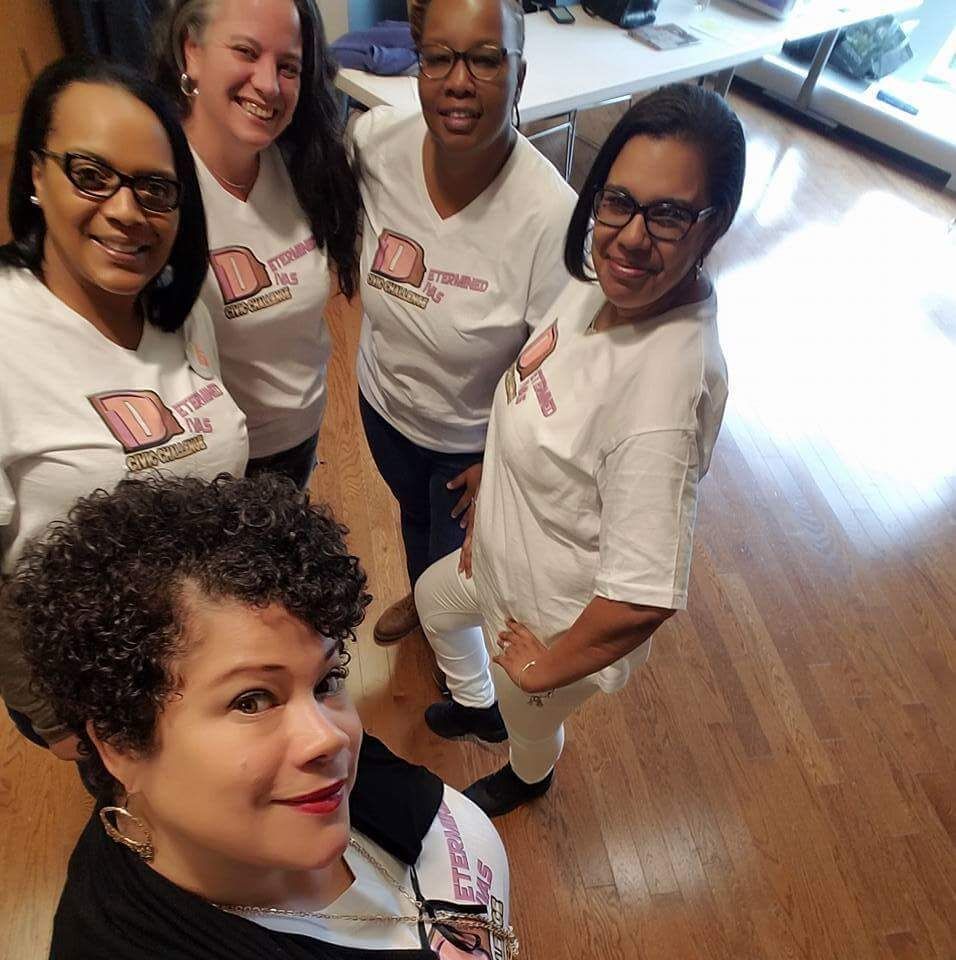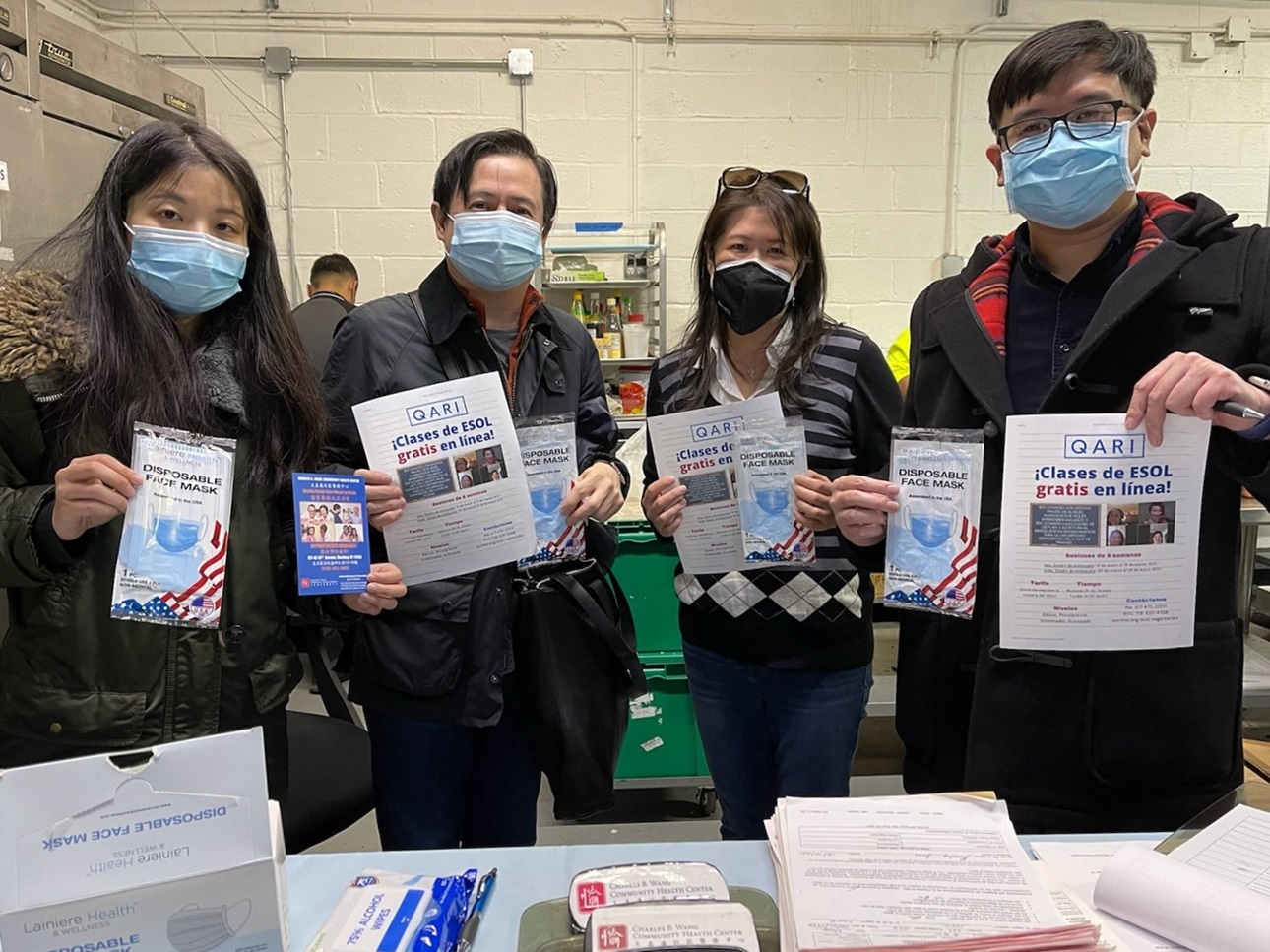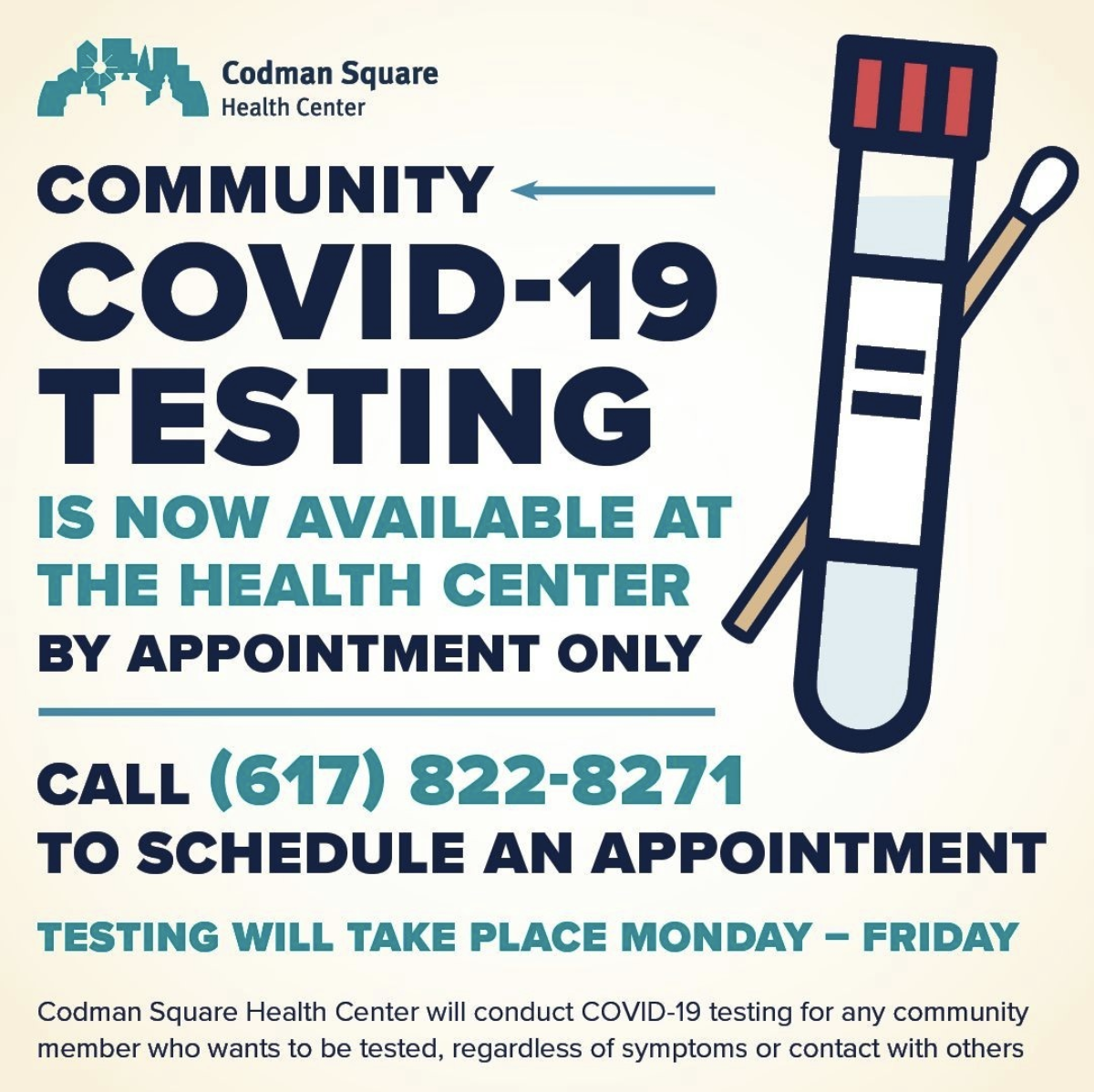Seeing Strength in Crisis
COVID-19 has put a spotlight on underlying inequities in our communities - and the organizations combatting them.
December 14, 2020
By Vetto Casado, Assistant Director, Programs
While COVID-19 has highlighted the systemic inequities and resource gaps in too many communities, it has also brought a brighter spotlight to those organizations that, through their community-based leadership, their proximity to the critical issues and their strength and authenticity of leadership and purpose, are making a major difference in ways large and small.
Take, for example, three organizations the Foundation has partnered with as part of the COVID-19 Response Fund: Determined Divas; Quincy Asian Resources; and Codman Square Health Center. Through their innovative practices, the resilience of their teams and staff, and a deeply rooted commitment to the communities they serve, they illustrate the strength with which these organizations strive to improve their own and the larger world.
Determined Divas
“I remember the phones ringing non-stop,” says Cisnell Baez, Director of External Affairs for the office of Boston Councilor At-Large Julia Mejia, who is also a founding member of Determined Divas, an initiative led by women to connect low-income communities to the electoral process. Even though it was an election year, the calls were not about voting. Food insecurity and access to basic needs proved to be the greatest challenge in the spring of 2020. As the pandemic took hold, Determined Divas, like nonprofit leaders across the city, started to reach out and think of ways to collaborate on projects, since many did not have food security as a core focus area and had to change course in how they served their community. Looming evictions, job losses and health emergencies exacerbated community fears and made traditional food pantry options and basic needs a logistical challenge. Residents—especially Boston’s elderly—were afraid to stand in crowded food-lines or go out to large gatherings and markets, and looked for safer food options from the start of the pandemic. After hours of long meetings with key stakeholders, small business owners and local residents, the team at Determined Divas began to think “inside the box.”
They knew that folks needed access to food, that small bodegas and markets were in need of customers, and that local restaurants were on the verge of shutting down. This was a multi-layered issue that needed direct community intervention and support. That’s where the Boston Foundation and other partners such as the Boston Resiliency Fund stepped in. “The Foundation really became the catalyst for our Culturally Conscious Food Pantry Project,” says Mejia. “We didn’t just feed folks; we fed the souls of the businesses that also really needed support during this time.”
The Culturally Conscious Food Project partnered with more than 30 local bodegas and family-owned markets throughout predominantly Black and Brown neighborhoods in Greater Boston. Providing “culturally conscious options,” familiar food staples like plátanos, sofrito, bacalao and frijoles were now readily available through $150 Google-generated voucher codes to be used at local markets or bodegas and distributed to residents at community sites. This provided people with the opportunity to access foods of their choice while safeguarding both their health and dignity—shopping on their own terms to make their own selections and feed their families nutritious, comforting meals. As of October, nearly 600 Boston families had participated in this initiative and the project has expanded to Charlestown, South Boston and as far south as Brockton in partnership with community groups in those areas.
Determined Divas also partnered with 15 family-owned restaurants in Boston, which provided thousands of meals delivered monthly to seniors in the community. With a total estimated cost of $12.50/meal, the economic impact of these doillars on small businesses has been a needed safety net.
According to Mejia, “This is a triple bottom line approach. Our dollars circulated in our communities three times! We win, restaurants and small businesses win, and our residents win!”
Quincy Asian Resources
A similar dynamic played out in Quincy, where Quincy Asian Resources (QARI) has provided English classes, citizen programs, adult education, mentorship opportunities, elder services, social activities, cultural festivals and more since 2001. In addition to basic language and civics instruction, QARI has taken on a role of cultural liaison for immigrants from all over the world. The organization helps immigrants figure out health care, helps parents navigate American public schools, prevents senior citizen isolation with field trips and activities, and provides a mentorship program for the middle school children of immigrants.
And, like Determined Divas and many other nonprofits in our region, QARI was initially not structured to address the immediate consequences of the COVID-19 pandemic. Quincy has the highest concentration of Asians per capita in the Commonwealth, and its large immigrant population, as in other emerging immigrant cities, has a high share of front-line and service workers—the backbone of Boston’s economy. It also includes many highly trained immigrants, and when the crisis led to inevitable layoffs in lower-paying roles, economic gaps and inequities were further widened.
Harnessing the skills and experience within its immigrant population, QARI sprang right into action and developed a manufacturing function in the community to create jobs for those who were suddenly without them. PPE manufacturing “sewing circles” started to sprout up where residents could earn a living wage and create hundreds of PPE items from the comfort of their own homes in partnership with a few unexpected allies. So far, national retailer Brooks Brothers as well as the United States Navy have come to the table in need of partnership. While COVID-19 shut down traditional manufacturing, forcing companies to switch to production of protective equipment, workers afraid of returning to work amid a pandemic turned to QARI.
“Folks were fearful to go back to work with COVID so rampant, but Brooks Brothers still had to make 150,000 units of PPE per day,” QARI Executive Director Philip Chong says. “So, we started a home-based sewing network, got the cut materials from Brooks Brothers, and then delivered to people’s homes to be picked up weekly. Our home-based network makes tens of thousands of pieces of PPE per month.”
Through its new workforce partnership program propelled by the Boston Foundation’s COVID-19 Response Fund, “We quickly got a lot of people buying our face masks, isolation gowns and face shields. We were really able to create jobs for these workers.” As QARI looks ahead to the next fiscal year for the organization, the workforce program will be an integral part of keeping folks employed for months to come. Community-led, community-based initiatives are at the heart of this important response work.
Codman Square Health Center
Early in the COVID-19 pandemic, Codman Square Community Health Center adapted and shifted the way it delivers routine care. While in-person visits during the pandemic remained mandatory for the most urgent of cases, other appointments such as physicals, mental health services and related check-ups had to be routed through telehealth portals—and in record time, given the severe disruptions to childcare, transportation and access for many community residents. The Boston Foundation’s COVID-19 Response Fund was the first of several key investments made to Codman Square Health Center that provided the opportunity to quickly ramp up operations and the provision of services. Elliot Rousseau, Grants Manager for Codman Health stated an alarming trend: “In a matter of weeks, the COVID-19 pandemic had accelerated the need for telehealth capabilities in our sector by three to four years. This is and will continue to be a daunting task.”
With the support of the Boston Foundation, Codman Square Health invested $25,000 in IT infrastructure to handle greater online traffic and demand. Initial patient surveys showed an increased need in mental health services as well as favorable outcomes by patients preferring the private nature of online visits. While the initial phase of this rollout provided a steep learning curve for patients not used to online offerings, the center has been very optimistic about the future of online telehealth.
“This is Phase 1 of a new revolution in community health. Once the technology of biometrics and wearables becomes more affordable and easily accessed by all, the state of the sector will be changed forever. We hope that these advancements continue to disrupt health gaps and structural inequality for our patients and our community.”
These are just a few examples of the dedication, creativity and plain hard work of the people who work for and with these organizations. We know there are many more out there. The Boston Foundation’s Assistant Director for Programs Vetto Casado says, “Being engaged in this work has been one of the greatest privileges of my career, and I thank everyone who has executed or supported these—and other—organizations’ efforts. We need to share more of these impactful and uplifting stories.”
To date, donations to the Boston Foundation’s COVID-19 Response Fund have made it possible for the Fund to make $10 million in grants to Greater Boston nonprofits. To learn more, visit tbf.org/covid19fund.



